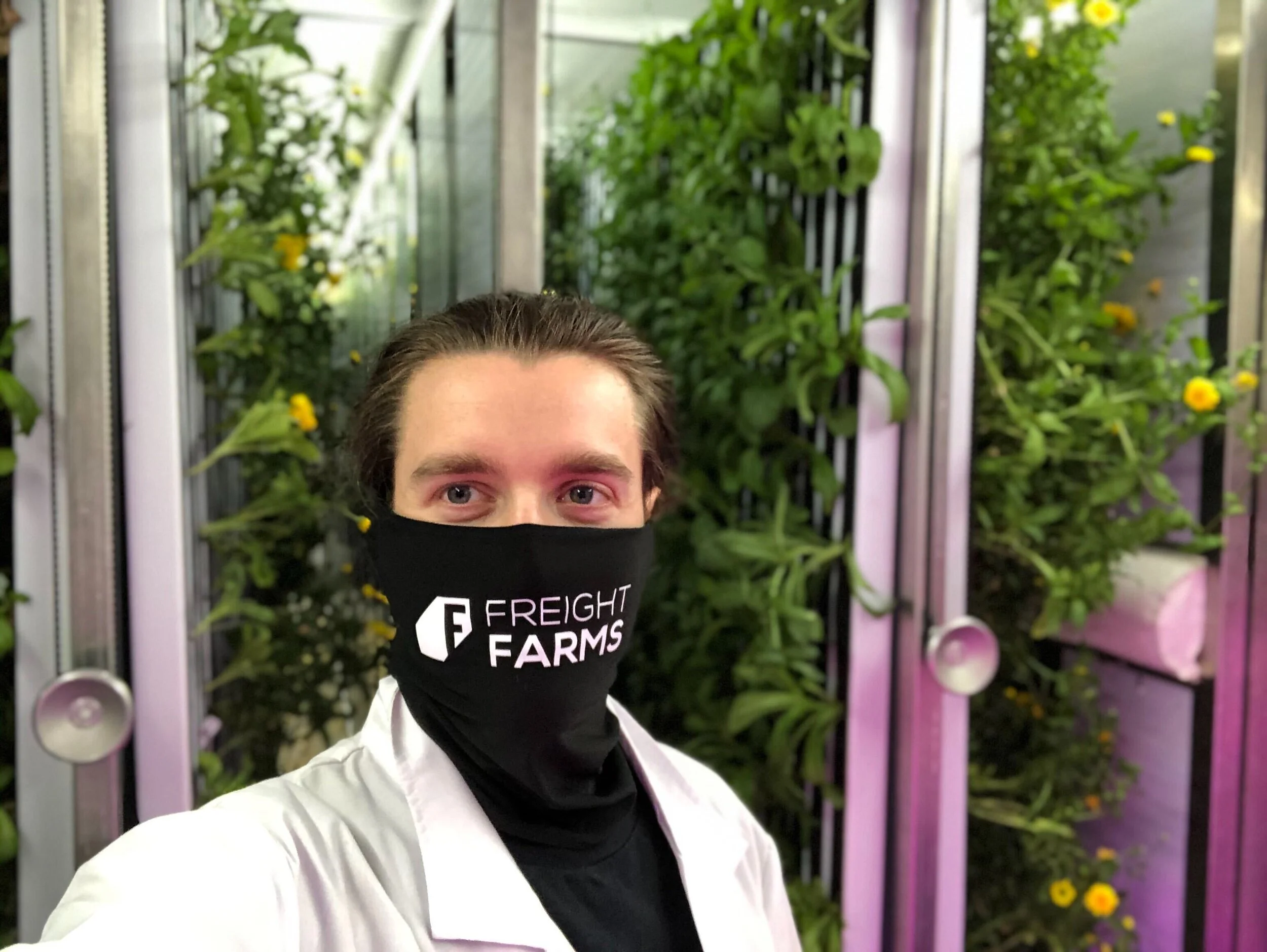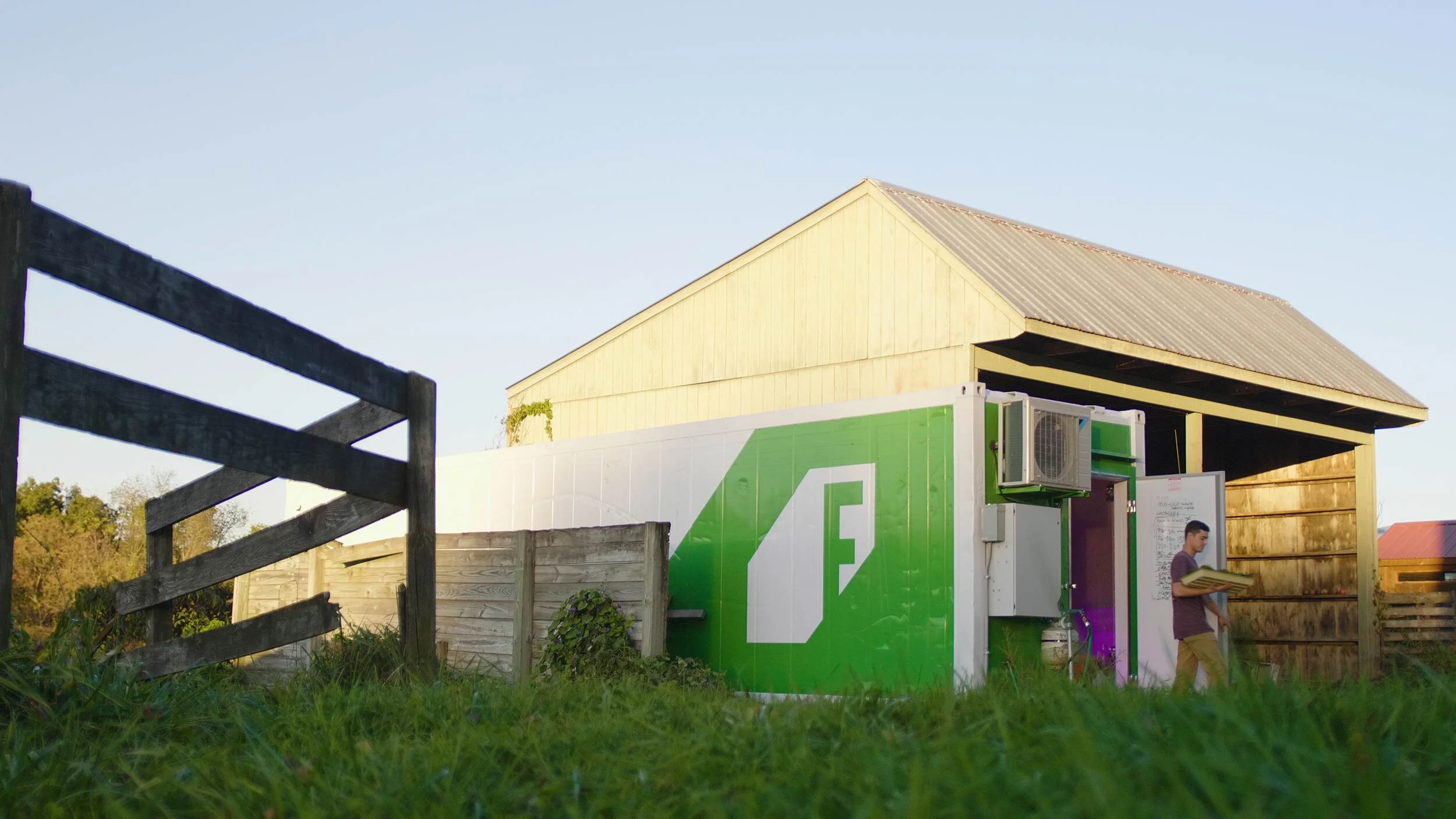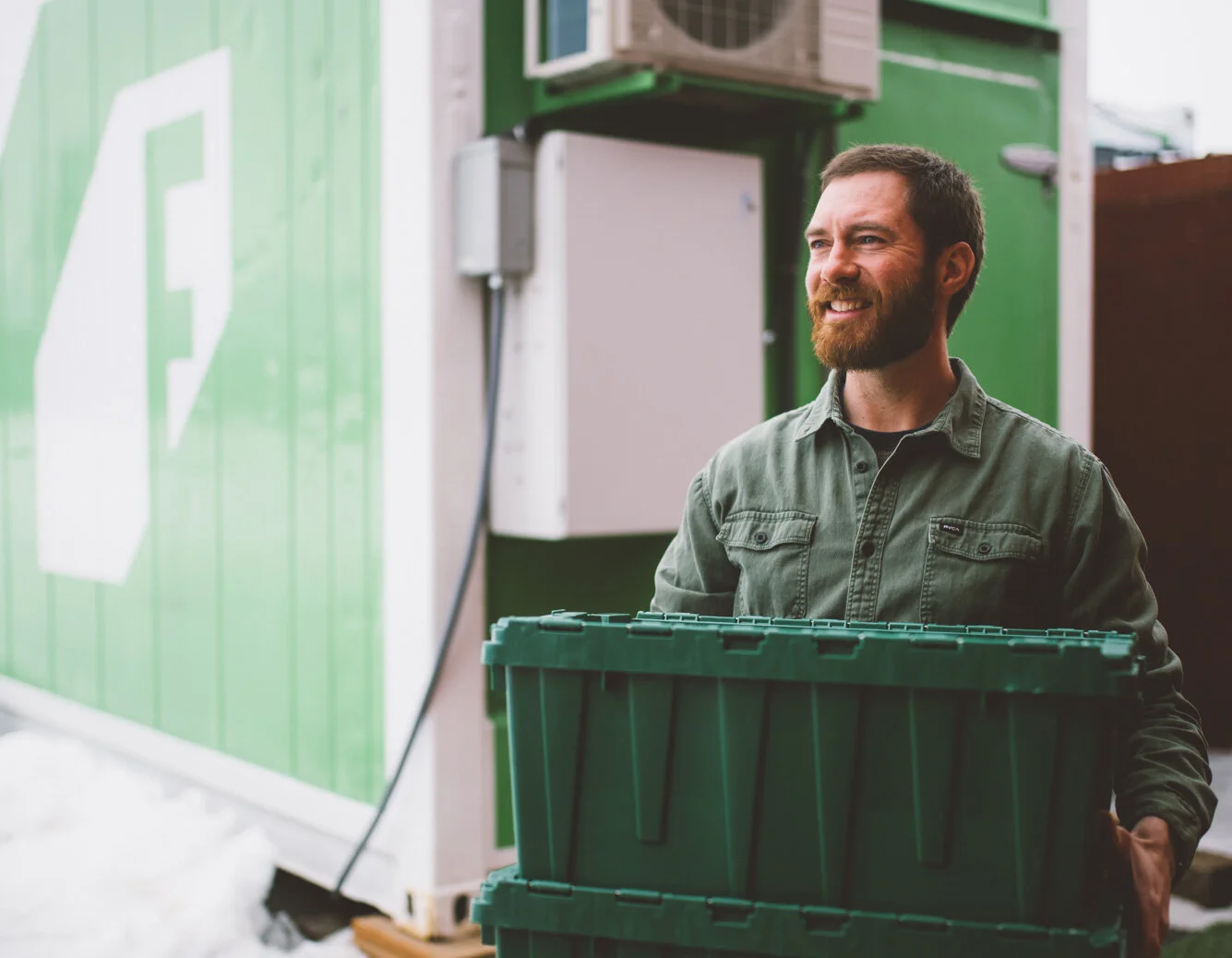We asked chefs and Freight Farms customers about what makes hydroponic produce the best option for the restaurant industry. Across the board, chefs love the distinct flavors, fresh textures, and longer shelf-life.
Read MoreDuring 2020, the pandemic shone a spotlight on the key flaws within our food system and the need for a workplace revolution. We saw a tremendous growth of interest from people who wanted to find a new career in bringing fresh and healthy food to their community.
Read MoreThe Timveos-Oxtoby family is committed to bringing fresh food to the arid island of Cyprus! They see their hydroponic farm as a direct way to combat the island’s drought-prone climate and dependence on imported goods!
Read MoreAnd it’s getting really old, really fast.
Read MoreAs we strive to build a more inclusive farming system, we must acknowledge the ugly history and policies that have brought us to where we are today. Only by taking a hard look at our past can we hope to build a better future.
Read MoreWe’re taking a hard look at the Freight Farms mission and then we’re taking a stand.
Read MoreRobbinsville, New Jersey is the first municipality to add a Freight Farm to their town! The community farm serves the Senior Center, Meals-on-Wheels, and a local food bank. It’s also the center of a huge volunteer and education program that gets the whole town involved with growing their own food.
Read MorePillsbury United Communities food resiliency program lifts up the Minneapolis community and address topics of culture, education, health, policy, and justice. With urban gardens, meal programs, food shelves, a community grocery store, and Freight Farm, Pillsbury has built a holistic food ecosystem to tackle system issues affecting food access.
Read MoreWhen Jack Levine first started college at Clark University in Worcester, Massachusetts, he had never heard of container farming, let alone imagined it as a career. Today, he’s paying the experience forward by bringing sustainable indoor farming to schools and organizations around the state.
Read MoreThe rebuilding that will come in the aftermath of COVID-19 is a fertile opportunity to create meaningful change on a personal, community, and global scale. Farming allows you to pursue what’s most important while providing you the stress-free and resilient business opportunity that you may be looking for.
Read MoreThe Lotus House Farm is an essential piece of the Miami non-profit that has built a residential and resource center for women and children experiencing homelessness. The farm is the source of healthy greens for the community kitchen and an innovative after-school program for children of all ages. With the farm, Lotus House questions what the “shelter” experience is, and how creating a holistic approach can help change lives for the better.
Read MoreWe’re highlighting just four amazing non-profits who are harnessing the power of growing food to empower individuals, nurture bodies, and unify communities. Learn more about their container farming projects!
Read MoreWith restaurants across the country closing or drastically reducing their services, the small farmers who depend on the food industry are suffering. Freight Farms explores how these farmers can stay profitable during these uncertain times by quickly pivoting to a number of direct-to-consumer strategies, including CSAs, “drive-through” farmers markets, and more.
Read MoreThe 2020 novel coronavirus outbreak has disrupted almost every industry–and the global food supply chain is no exception. As shortages in grocery stores continue, Freight Farms explores how the virus has exposed long-standing issues in how we source and transport our food. Can a distributed supply network be the key to a more resilient system in the future?
Read MoreFor today’s modern corporate campus, Freight Farms provides the opportunity to seamlessly integrate sustainable food production into current operations
Read MoreFreight Farms corporate customers Sodexo, Everlane, SEFCU, and Ford leverage indoor farms as platforms for community health, wellness, nutrition, sustainability, education, and jobs initiatives. See how they each found a unique way to apply innovative hydroponic technology.
Read MoreClawson Greens has made the impossible, possible. By growing food indoors using three hydroponic container farms, Dave Ridill has been able to grow fresh greens year-round in Teton Valley, Idaho–a snowy region of the country that typically has a growing season shorter than 3 months. Dave shared his secrets to success with the Freight Farms team in a Q&A!
Read MoreFarmhand® helps you operate your smart container farm by giving you control over farm functions and access to important farm data that you can use to improve your operations week over week.
Read MoreWhile most of us think about a plant growing from seed, there’s actually another way...cloning! Cloning might sound like a complicated process involving mad scientists, but it’s actually quite simple. Learn how to clone any plant in 4 easy steps.
Read MoreLet's talk about nutrients! Sounds complicated, right? Well, we won’t lie, there are a lot of factors involved in giving plants the ideal combination of nitrogen, phosphorus, potassium, and other necessary nutrients. The good news is that getting it right in the Greenery S is easy!
Read More



















